The ancient wooden door in the Undercroft at Wells Cathedral offers a fascinating glimpse into the cathedral’s rich history. Dating back to 1265, the inner door served as the primary entrance to the Undercroft, which housed the cathedral’s treasures and valuable manuscripts during medieval times.
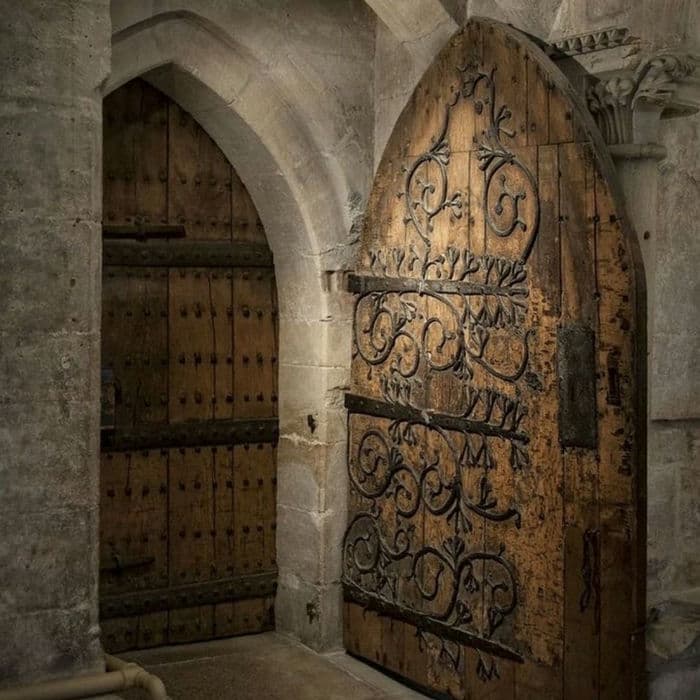
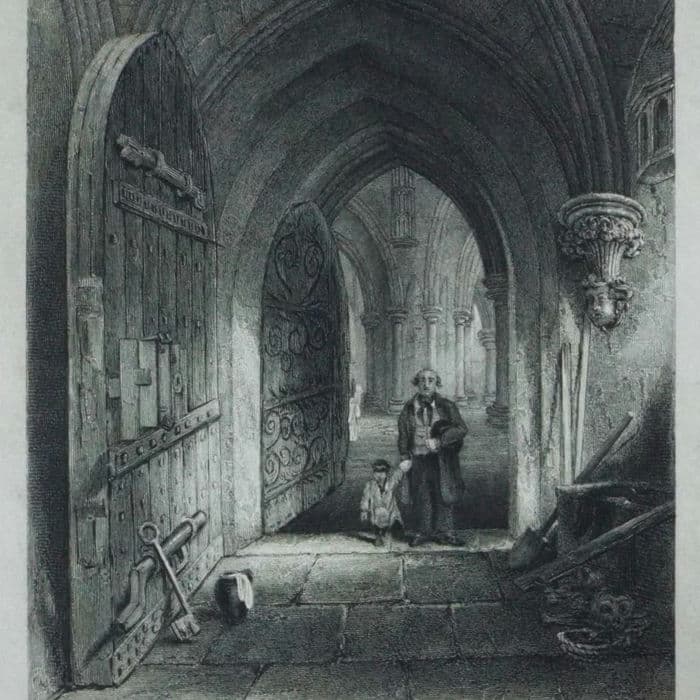
Constructed of vertical planks strengthened by a ‘portcullis’ frame, the inner door features intricate iron scrollwork adorned with leaves, flowers, and small birds. Above the door, a bolt hole allowed for the secure closure of the entrance, providing added protection for the cathedral’s prized possessions.
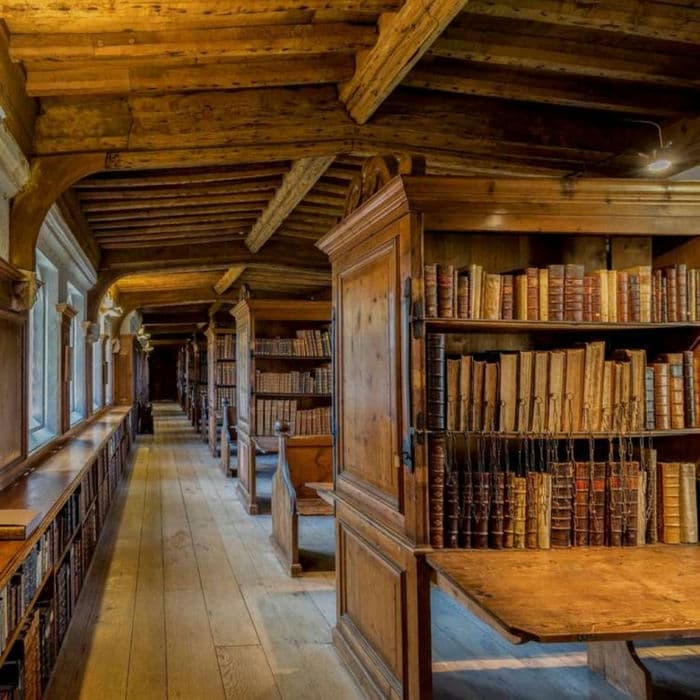
In contrast, the outer door, dated to around 1450, was installed during a period of heightened security concerns. Equipped with an impressive lock and bolting system, as well as vertical and horizontal planks, the outer door was designed for maximum strength and security. Today, it remains permanently shut to safeguard the sacristy, while visitors can still admire both doors from the Undercroft.
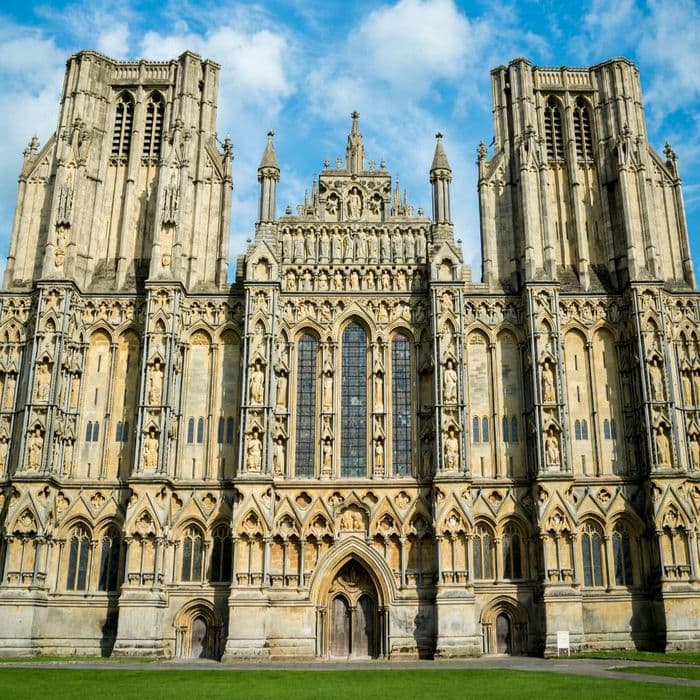
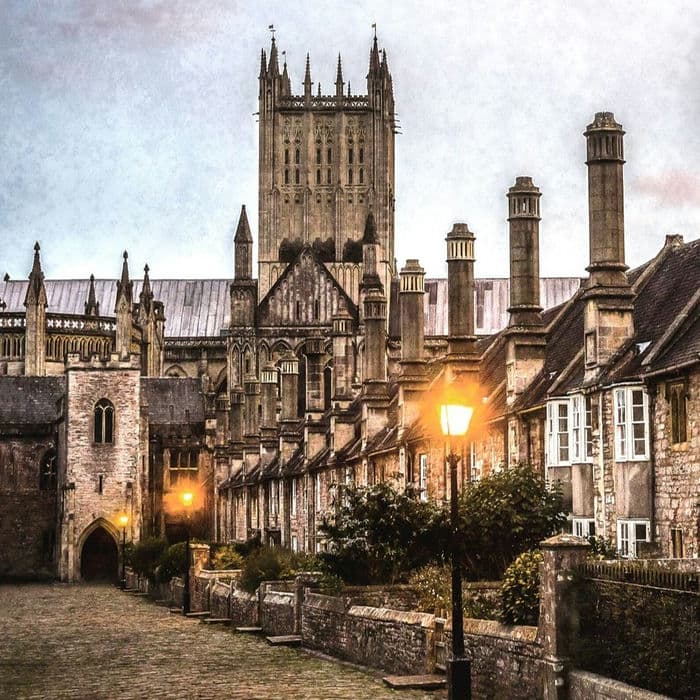
The Undercroft itself, built between 1275 and 1310, serves as an exhibition space open to the public. Designed in the Geometric style of Decorated Gothic architecture, it adds to the cathedral’s architectural splendor and provides visitors with an immersive experience of its history and significance.
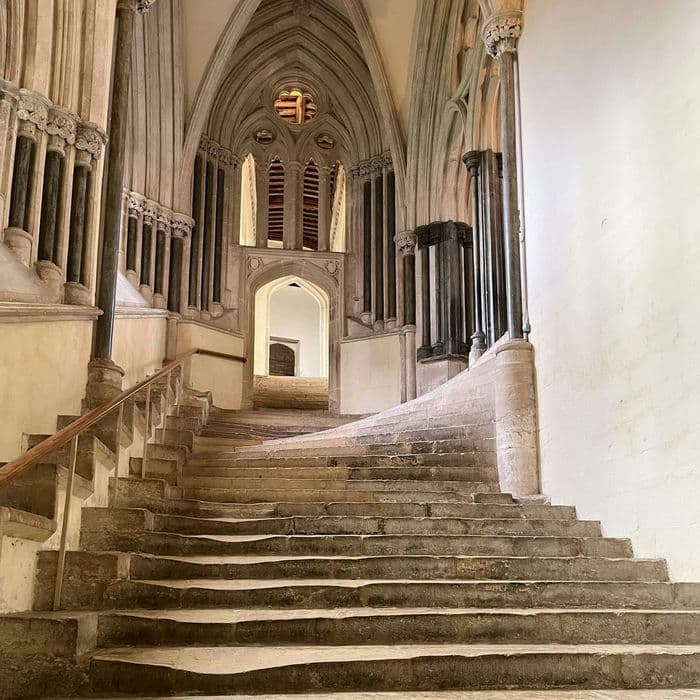
Wells Cathedral stands as a magnificent example of English Gothic architecture, boasting unique features such as the iconic West Front, scissor arches, and historic stained glass windows. Visitors can also marvel at the Wells Clock, one of the oldest in Great Britain, and explore treasures like the octagonal Chapter House and the chained library.
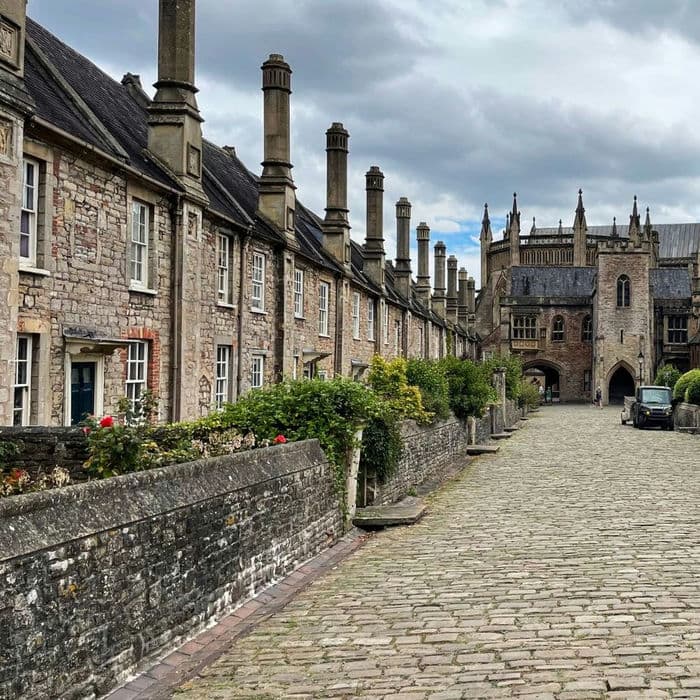
Adjacent to the cathedral lies Vicars’ Close, a medieval street that remains remarkably intact. Designed to house the Vicars Choral, who played a vital role in cathedral worship, the Close continues to be inhabited by members of the choir, preserving centuries-old traditions in the heart of Wells.
Overall, Wells Cathedral and its surroundings offer visitors a captivating journey through history, architecture, and religious significance, making it a must-visit destination in Somerset.
